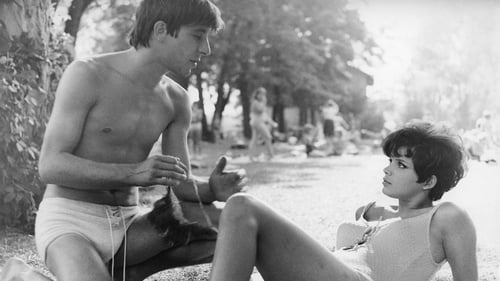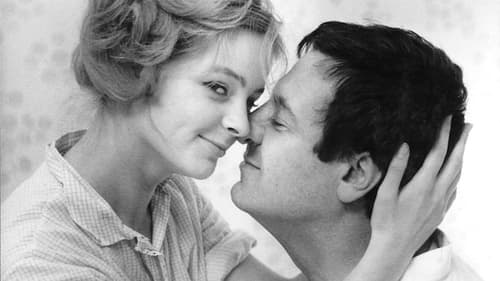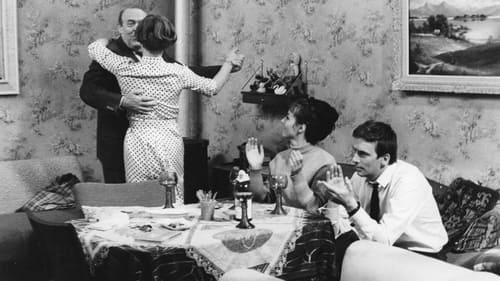Peter Schamoni
Nascimento : 1934-03-27, Berlin, Germany
Morte : 2011-06-14

Director

Herr Winter
Evil assassins want to kill Daniel Küblböck, the third runner up for the German Idols.

Producer
Evil assassins want to kill Daniel Küblböck, the third runner up for the German Idols.

Writer
A documentary about Germany's last Kaiser Wilhelm II.

Director
A documentary about Germany's last Kaiser Wilhelm II.

Writer
In the sixties the painter and sculptor Niki de Saint Phalle started her career with shooting paintings, reliefs that were fired at with paint bags. She became famous and popular for her Nanas, colorful sculptures of big and cheerful women, and for the cooperation with Jean Tinguely. The frame of this film is a tour through her tarot garden in Tuscany.

Director
In the sixties the painter and sculptor Niki de Saint Phalle started her career with shooting paintings, reliefs that were fired at with paint bags. She became famous and popular for her Nanas, colorful sculptures of big and cheerful women, and for the cooperation with Jean Tinguely. The frame of this film is a tour through her tarot garden in Tuscany.

Writer
This documentary celebrates Max Ernst, one of the most influential and visionary artists of the past century. The film covers the highlights of Ernst's fascinating career via a format that mirrors the restless reality of his life. An inveterate traveler and always on the move, Ernst lived and worked in Germany, France and America. His nomadic way of life kept him searching: "A painter is lost if he finds himself."

Director
This documentary celebrates Max Ernst, one of the most influential and visionary artists of the past century. The film covers the highlights of Ernst's fascinating career via a format that mirrors the restless reality of his life. An inveterate traveler and always on the move, Ernst lived and worked in Germany, France and America. His nomadic way of life kept him searching: "A painter is lost if he finds himself."

Director

Director
A study of German 19th Century Romantic art through the writings and paintings of Carl David Friedrich and his fellow artist, Carl Gustav Carus.

Writer
A study of German 19th Century Romantic art through the writings and paintings of Carl David Friedrich and his fellow artist, Carl Gustav Carus.

Writer
"Spring Symphony" is the story of Robert Schumann and Clara Wieck. Both were music entities. Robert Schumann turns out to have been a second tier composer, if that, never rising to the heights of a Beethoven or Mozart. In contrast, Clara Wieck was a master technician in the playing of the piano, a composer (probably not at Schumann's level), and was a child prodigy.

Director
"Spring Symphony" is the story of Robert Schumann and Clara Wieck. Both were music entities. Robert Schumann turns out to have been a second tier composer, if that, never rising to the heights of a Beethoven or Mozart. In contrast, Clara Wieck was a master technician in the playing of the piano, a composer (probably not at Schumann's level), and was a child prodigy.

Biopic of tragic Schlager singer Drafi Deutscher.

Producer
A singer and a mysterious foreigner plan an abduction.

Co-Executive Producer

Director
a brief documentary about Dorothea Tanning with gothic flourishes

Reverend Cavenham
Potato Fritz (Hardy Kruger) and his friends have moved from Germany to the American Wild West, settling eventually in the Rockies. They are besieged by what appear to them to be hostile Native Americans. Before too long, it becomes clear that the hostiles are in fact a gang of gold thieves. This movie is notable among German-made Westerns for its use of authentic period costumes and firearms.

Editor
Potato Fritz (Hardy Kruger) and his friends have moved from Germany to the American Wild West, settling eventually in the Rockies. They are besieged by what appear to them to be hostile Native Americans. Before too long, it becomes clear that the hostiles are in fact a gang of gold thieves. This movie is notable among German-made Westerns for its use of authentic period costumes and firearms.

Director
Potato Fritz (Hardy Kruger) and his friends have moved from Germany to the American Wild West, settling eventually in the Rockies. They are besieged by what appear to them to be hostile Native Americans. Before too long, it becomes clear that the hostiles are in fact a gang of gold thieves. This movie is notable among German-made Westerns for its use of authentic period costumes and firearms.

Producer
Daddy, filmed in cooperation with movie director Peter Whitehead, discovers the connection between a father and little girl. Like the majority of Niki De Saint Phalle’s films, the flick combines autobiography with imagination, mixing erotic scenes of incest with a reverse of energy as the female character humors the daddy figure. Saint Phalle narrates the film, offering an almost psycho-analytical explanation of its content and explains the different inexplicable.

Producer
A group of gamblers travels through Europe.

Producer
Hundertwassers Regentag is a german documentary by Peter Schamoni released in 1972.

Writer
Hundertwassers Regentag is a german documentary by Peter Schamoni released in 1972.

Director
Hundertwassers Regentag is a german documentary by Peter Schamoni released in 1972.

Pfarrer
Two former lovers start a new relationship.

Producer
Brother and sister meet again after 15 years and fall in love with each other.

Director
Brother and sister meet again after 15 years and fall in love with each other.

The film features several horse trainers and other track workers talking about their roles at the track, always eventually interrupted by an older man who claims to be the true authority, and demands that they be thrown out. One recurring young man, the first to appear, claims that he protects the horses from enthusiastic racing fans. He does not appear to be employed by the track, but seems to provide his services voluntarily. His protection from "fanatics" gives the film its title. The film is shot in a documentary style, but the sheer implausibility of the dialogue leaves the exact nature of the film ambiguous.

Producer
Musical comedy set in Berlin Kreuzberg.

Documentary by Wilhelm Roth about the state of affairs of the Young German Cinema.

Producer
Martin is 25 years old and very reserved about work. Together with his buddy Henry, he lives in their Schwabing apartment in the day. But everything changes when he falls in love with the attractive Barbara and observed a slump: For when he gives up the police report, the officials themselves suspect him of the crime. In addition, he still owes a text to the hit producer Viktor Block. Suddenly Martin is up to his ears in chaos.

Producer
A man returns every year to visit his estranged family and friends in this drama dripping with biting social commentary. His 40-year-old buddies are part of the nouveau riche who consider themselves elite and are content to sandbag it at work. Teutonic sentimentality is lampooned, and the narrow minded are held up to ridicule. Some fine performances outweigh the passages of unintentional humor in this second film from director Ulrich Schamoni.

Writer
Max Ernst on amateur astronomer Ernst Wilhelm Leberecht Tempel.

Director
Max Ernst on amateur astronomer Ernst Wilhelm Leberecht Tempel.

Interview film with the protagonists of the New German Cinema in 1966.

T. finds a letter. Instead of just dropping it in a mailbox, he decides, conscientious as he is, to deliver it personally. He wanders the entire world, discovers astounding forms of existence, but cannot be hindered from his duty and keeps looking until he finally finds the address. There, he finds out that he has delivered his own judgment.

Writer
Two old school friends, both in their late twenties. One lives on his parent’s rural estate and does nothing; the other half-heartedly pursues work as a journalist in Düsseldorf.

Director
Two old school friends, both in their late twenties. One lives on his parent’s rural estate and does nothing; the other half-heartedly pursues work as a journalist in Düsseldorf.

Producer
Manfred and Hilke live a live perfectly complied with each other in West Berlin. They managed to elude from the bourgeois conformity, which they loath. But when Hilke finds out about her pregnancy she estranges from her partner. Trying to keep her former life as it was, she desperately looks all over the city to get an abortion.

Himself
Documentary about the current state of German cinema. Produced for German television.

Producer

Writer

Director

Director

Allegory of a man who leads the people to destruction and then is reborn to recommence the cycle.

Director

Producer
The inner world of the great painter Max Ernst is the subject of this film. One of the principal founders of Surrealism, Max Ernst explores the nature of materials and the emotional significance of shapes to combine with his collages and netherworld canvases. The director and Ernst together use the film creatively as a medium to explain the artist's own development.

Producer
Kristl was a member of the prestigious Zagreb Studio of Animation and his early works as painter and filmmaker had brought him instant acclaim and instant censorship. He fled Croatia and lived in Germany; he died there in 2004. Poor People, a “collective scream” of Cold War fear, was produced just after he left his country.

Kristl was a member of the prestigious Zagreb Studio of Animation and his early works as painter and filmmaker had brought him instant acclaim and instant censorship. He fled Croatia and lived in Germany; he died there in 2004. Poor People, a “collective scream” of Cold War fear, was produced just after he left his country.

Producer
A satirical examination of the ways the influx of German tourists to Spain affects the local population.

Editor
A satirical examination of the ways the influx of German tourists to Spain affects the local population.

Writer
A satirical examination of the ways the influx of German tourists to Spain affects the local population.

Director
A satirical examination of the ways the influx of German tourists to Spain affects the local population.

Editor

Producer

Writer

Director

Editor

Writer

Writer
In his experimental short film "Brutalität in Stein" (Brutality in Stone), Alexander Kluge demonstrates how Nazi architecture used dimensions of inhuman and super-human scale to bolster the regime's politics of the same kind. Shots of huge neo-classical architectural structures from the Nazi period are confronted with equally anti-human national-socialist language as a voice-over.

Director
In his experimental short film "Brutalität in Stein" (Brutality in Stone), Alexander Kluge demonstrates how Nazi architecture used dimensions of inhuman and super-human scale to bolster the regime's politics of the same kind. Shots of huge neo-classical architectural structures from the Nazi period are confronted with equally anti-human national-socialist language as a voice-over.

Editor

Writer

Director

Writer
A film made secretly in Moscow by Peter Schamoni during the World Festival of Youth and Students in the summer of 1957. His cameraman was Jost Vacano. During their trip, they made authentic film and audio recordings of a kind that had never been seen before in Western countries.

Director
A film made secretly in Moscow by Peter Schamoni during the World Festival of Youth and Students in the summer of 1957. His cameraman was Jost Vacano. During their trip, they made authentic film and audio recordings of a kind that had never been seen before in Western countries.




























